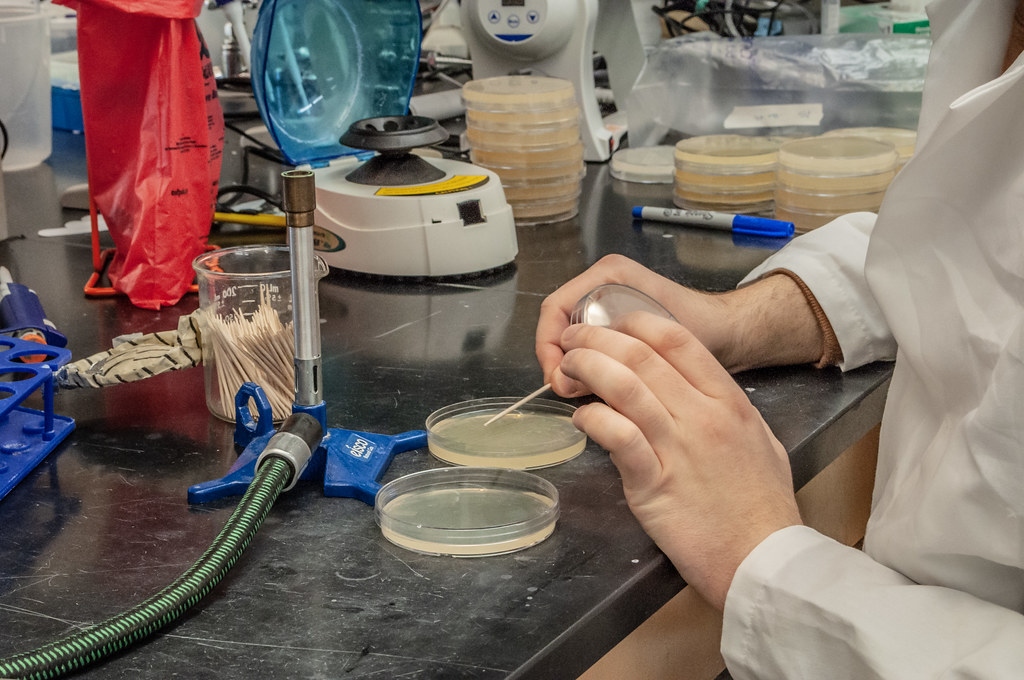When cold and dry air collide in a battle of wind and debris, a tornado begins to form.
This process got Leah Whitley into the field of science, intrigued with how things materialize in the world.
“I’ve always had a fascination with how things build up, and how everything has to come together to produce the weather, and that’s what interested me in science” Whitley said.
Between meteorology, anesthesiology and more, Whitley found a premed academic track, studying biological sciences, to be the path that’s stuck thus far and one that can lead to the biggest difference for her.
Whitley sees that potential to make an impact in her research of preeclampsia at Bond LSC. The condition leads to serious pregnancy complications including high blood pressure and protein in the urine that can threaten the life of a mother if left untreated. It affects many pregnant women around the world, especially women of color. Whitley works on the condition in Bond LSC thanks to a collaboration between Bond LSC scientist Mike Roberts and her adviser Laura Schulz, director of Institute for Women’s Health Research.
“Being able to just come in and talk to minority women about their bodies and educating them is rewarding in trying to figure out a way to close that gap,” Whitley said.
Whitley applies her interest in the weather to her lab work by breaking down a storm, or a condition, into an identifiable set of patterns or symptoms. Whitley works specifically with ISTC cells, a type of cell that supplies the placenta with nutrients during pregnancy. With no way to observe the placenta early on in a woman’s pregnancy, researchers simulate a placenta in the lab by forcing healthy cells to act like cells inside the womb to study what happens with the condition preeclampsia.
Whitley found her way to Bond LSC thanks in part to the Initiative to Maximize Student Diversity (IMSD) and Maximizing Access to Research Careers (MARC) programs, located on the first floor of Bond LSC. They give underrepresented minorities undergraduate research opportunities as well as mentoring to prepare students for research-focused graduate programs. Whitley is currently a Stage II apprentice in the program.
Preeclampsia is a fitting research area for Whitley, who wants to raise awareness for symptoms and conditions that differ among races and ethnicities. With undergraduate research experience at Bond LSC, she hopes to eventually become an OBGYN and find a fast-paced job such as working in a hospital, where she can discuss with patients the best treatment options or give them the support they need.
Outside of the lab, Whitley likes to paint in her free time. She applies skills from it when she breaks down the cells of an organism, creating a picture of how that cell will react to certain procedures. This is similar to Whitley’s fascination with the weather and how several factors can influence and escalate a forecast.
Whitley enjoys the team aspect of her position at Bond LSC, as well as how she can relate her interests to her research.
“I like to collaborate and interact with people within my work, and I have that capacity here that I enjoy,” Whitley said. “My work here is teaching me the knowledge I need to know and then once I’m in my classes it all starts to connect, becoming a full circle moment.”











